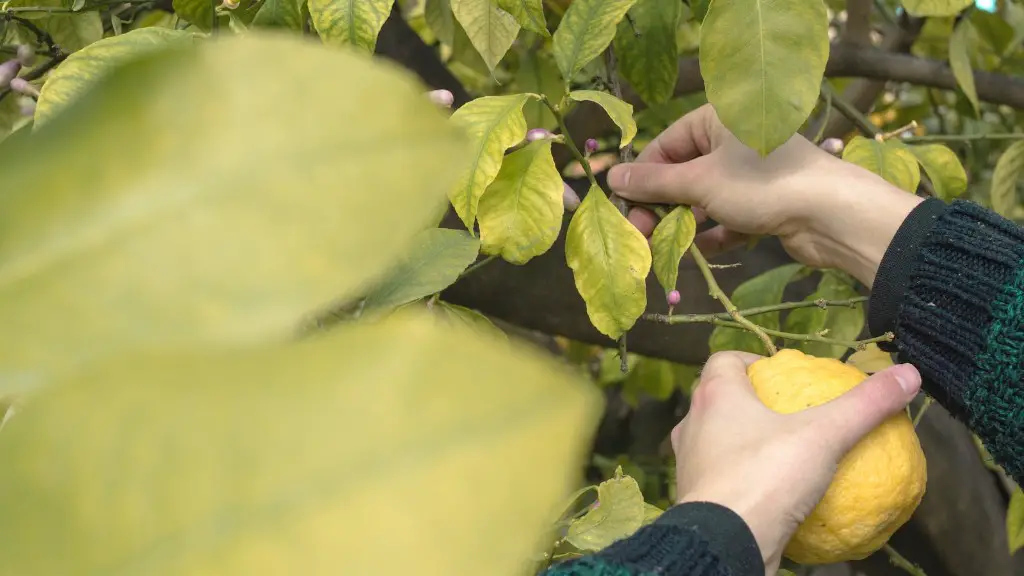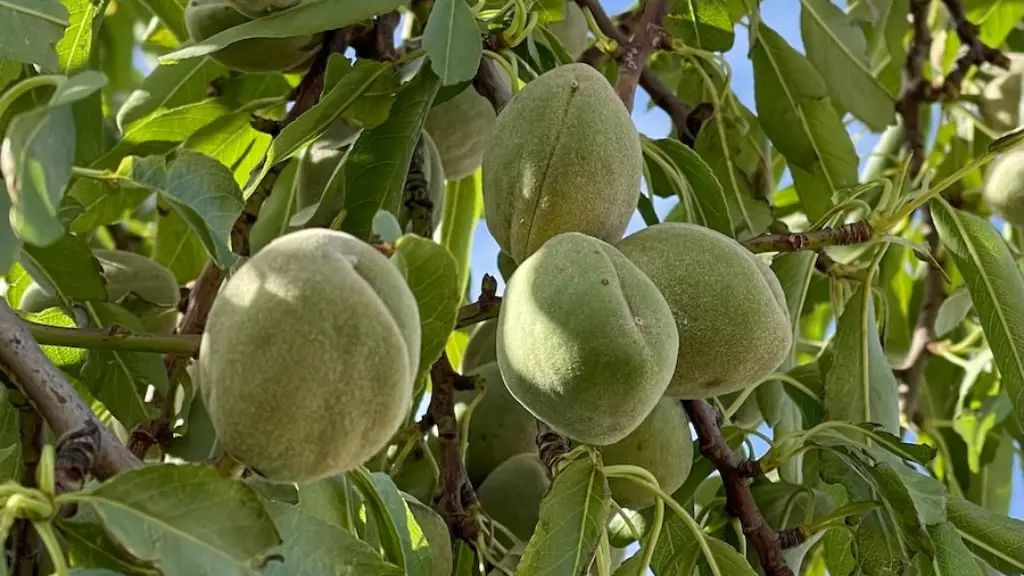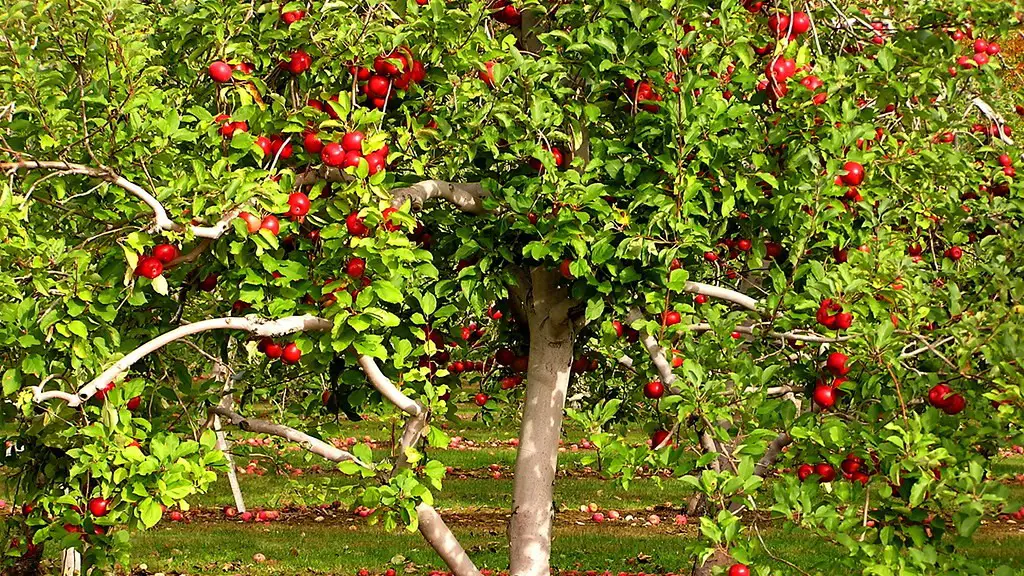Growing a fruitful lemon tree is possible by understanding and following the right steps. These steps involve good care and management of the tree, including soil preparation and management, watering, fertilizer application, and pest control. Here are some tips on how to improve lemon tree production and quality.
Soil Preparation and Management
Before planting, it’s important to ensure the soil has the necessary components for the lemon tree to grow. The soil should be well-drained, loose and light. Additionally, it should also be slightly acidic as lemon trees prefer slightly acidic soil. To achieve the right soil mix, farmers should add topsoil, manure, or compost. Soil testing should also be done to ascertain the right amendments needed. When planting, the right depth should also be achieved, and the soil should be compacted.
Watering
Water is necessary for lemon trees to get the nutrients they need. While lemon trees prefer dry soil, they also need to be watered regularly. Farmers should check to ensure soil moisture is maintained before watering, and water only when the top 2 inches of soil are dry. In addition to regular watering, it’s important to always water the soil around the tree, rather than the tree itself. Ideally, irrigations should be done weekly, and no more than every three days.
Fertilizer Application
Fertilizer should be applied to the lemon tree to ensure its growth and health. A balanced fertilizer should be applied every four to six weeks during the growing season with higher concentration levels during early winter and spring. In the early months of a lemon tree’s life, fertilizer should be applied between a foot and two feet away from the trunk. As the tree grows, so should the circumference of fertilizer application, increasing by two feet with each successive application.
Pest Control
To avoid pest damage, lemon trees should be monitored regularly for pests. If a pest infestation is detected, farmers should take steps to remove the pests. This can be done manually by picking the pests off or by the use of a pesticide. Chemical pesticides should only be used as a last resort when other means of pest control have proven unsuccessful. It’s also important to use pesticides that are suitable for citrus trees.
Mulching
Covering the ground around the lemon tree with a layer of mulch can help to protect the roots from extreme temperatures, retain moisture and prevent weed growth. Mulch can also help to reduce soil compaction, improve soil aeration and improve soil fertility. For optimal results, a layer of 4 to 6 inches of mulch is recommended.
Pruning and Trimming
Pruning and trimming should be done to improve light and air circulation and prevent disease. Pruning is also necessary to remove excessively long stems and branches, dead or diseased limbs, and cultivate a more attractive and productive tree. Pruning and trimming should be done during the late winter or early spring months, when the tree is dormant. It’s important to use sharp pruning shears and to clean the shears after each cut.
Plant Nutrition
Lemon trees should also be given plant-based nutrition in addition to fertilizers. This can be done through the use of plant-based fertilizers and supplements that have beneficial micro- and macro-nutrients, as well as beneficial microbes and enzymes. Plant-based nutrition can help to promote root development, accelerate nutrient uptake, and relieve stress caused by nutrient deficiency.
Improving Soil Aeration
Soil aeration is essential for the health of lemon trees, as it allows for better oxygen movement and absorption of nutrients. Regular soil aeration can be achieved by adding compost or added organic material to the soil. Additionally, farmers can apply amendments such as gypsum to improve soil aeration and reduce soil compaction, allowing for better root growth and health.
Crop Rotations
Crop rotations are important for improving soil health and promoting disease resistance in lemon trees. This can be achieved by planting other crops in the same soil and then replanting a new crop after the previous crop has been harvested. This helps to prevent nutrient depletion and disease build-up, allowing for more productive and healthy lemon trees.
Protecting Against Pest Predators
Lemon trees should be protected from predators such as birds and insects that can damage the fruit. This can be done by using bird nets, covers, or repellents around the fruit. Additionally, farmers should also inspect trees regularly for insect damage, and take appropriate measures to control the pest population.
Proper Wiring and Tying
When training a lemon tree, proper wiring and tying should be done. This is essential for promoting tree structure and orchard productivity. Wires should be carefully placed in order to guide the branches without breaking them, and should be checked regularly for any damage or dislocation. Tying should also be done carefully to ensure the tree is properly supported and to promote growth in the desired direction.
Combating Soil Salinity
Lemon trees are particularly prone to soil salinity, so it’s important to monitor soil salinity levels regularly. This can be done by testing the soil, and taking action as needed. Soil amendments such as gypsum and organic matter can be used to reduce salinity levels and improve soil fertility. Additionally, leaching can be used to reduce salinity levels.
Using Organic Fertilizers
Organic fertilizers should be used to maintain and improve soil health when growing lemon trees. Organic fertilizers are naturally derived, and can help to provide essential nutrients to the tree. Additionally, they can also improve soil structure and aeration, allowing for better root growth. Organic fertilizers should be used as a supplement to regular fertilizer programs.


